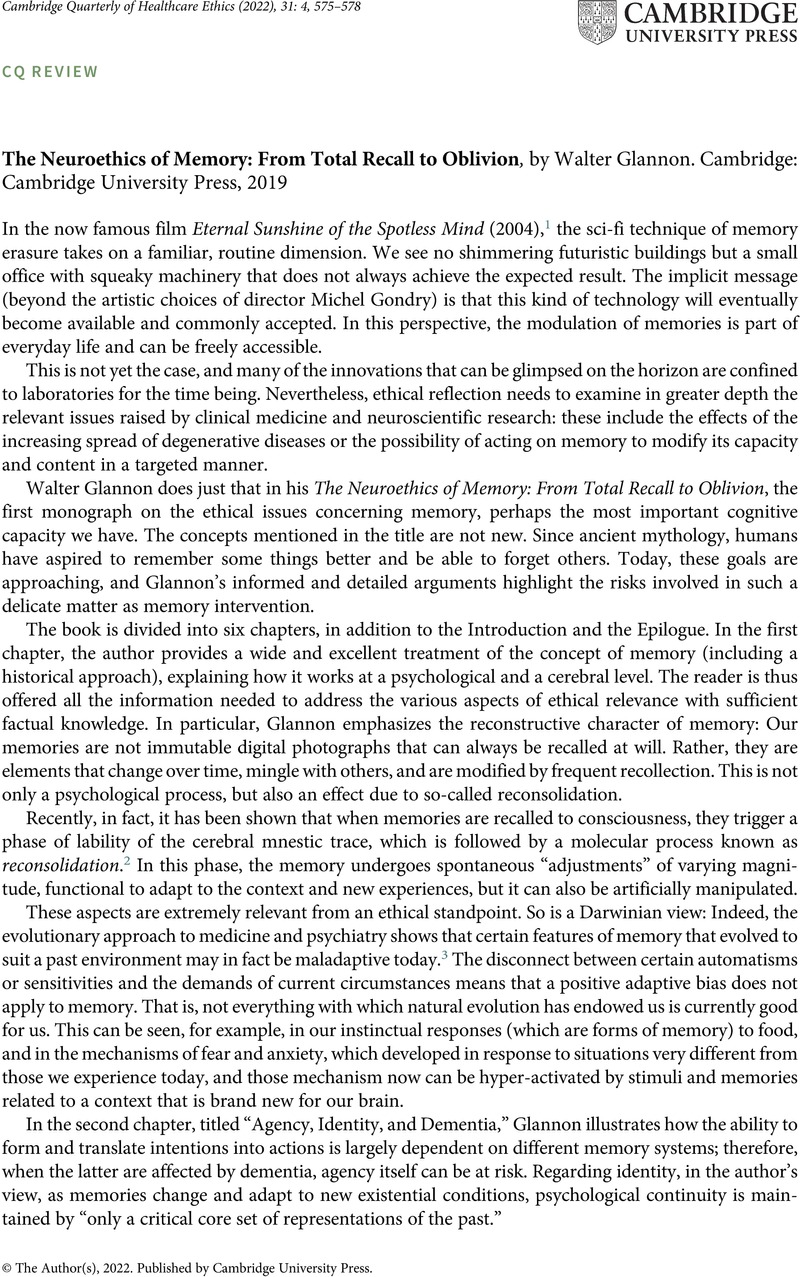No CrossRef data available.
Article contents
The Neuroethics of Memory: From Total Recall to Oblivion, by Walter Glannon. Cambridge: Cambridge University Press, 2019
Review products
Published online by Cambridge University Press: 18 November 2022
Abstract

- Type
- CQ Review
- Information
- Copyright
- © The Author(s), 2022. Published by Cambridge University Press
References
Notes
1. Grau, C, ed. Eternal Sunshine of the Spotless Mind. New York: Routledge; 2009 CrossRefGoogle Scholar.
2. Nader, K, Schafe, GE, Le Doux, JE. Fear memories require protein synthesis in the amygdala for reconsolidation after retrieval. Nature 2000;406(6797):722–6CrossRefGoogle ScholarPubMed.
3. Nesse, R. Good Reasons for Bad Feelings: Insights from the Frontier of Evolutionary Psychiatry. New York: Dutton; 2019 Google Scholar.
4. Kolber, AJ. Therapeutic forgetting: The legal and ethical implications of memory dampening. Vanderbilt Law Review 2006;59:1561–626Google Scholar.
5. Kass, L, ed. Beyond Therapy: Biotechnology and the Pursuit of Happiness. New York: Regan Books; 2003 Google Scholar.
6. Lavazza, A. Erasing traumatic memories: When context and social interests can outweigh personal autonomy. Philosophy, Ethics, and Humanities in Medicine 2015;10(1):1–7 CrossRefGoogle ScholarPubMed.
7. Lavazza, A. Memory-modulation: Self-improvement or self-depletion? Frontiers in Psychology 2018;9:469 CrossRefGoogle ScholarPubMed.
8. Quiroga, RQ. Concept cells: The building blocks of declarative memory functions. Nature Reviews Neuroscience 2012;13(8):587–97CrossRefGoogle ScholarPubMed.
9. Zawadzki, P, Adamczyk, AK. To remember, or not to remember? Potential impact of memory modification on narrative identity, personal agency, mental health, and well‐being. Bioethics 2021;35(9):891–9. doi:10.1111/bioe.12926.CrossRefGoogle ScholarPubMed


